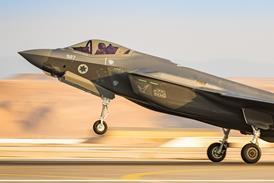Jet fuel prices have continued to increase following the dramatic declines earlier in the year, although with the collapse in demand it remains extremely weak by normal standards.
Energy data provider ICIS – which like Cirium is RELX-owned – priced jet fuel for barge delivery to northwest Europe at $309-310 per tonne on 9 June, an increase of $20 on the previous week and $103 on four weeks ago. However, the price remains less than half the $650-per-tonne level at which it stood at the start of the year.
“European spot jet kerosene prices remained firm this week, in a market swamped with offers struggling to materialise into trades,” ICIS writes. “While traders have been cautious of taking positions amid ample availability, an upswing in values has been largely driven by improving upstream crude oil futures.”
The switching of some jet fuel product into diesel, as well as lower refinery production rates, could support prices going forward.
Although a rise in jet fuel demand as lockdowns ease could also boost prices, for the moment ICIS believes airlines have large stockpiles of product that will limit their buying requirements.
“Despite the aviation industry showing signs of recovery and upstream crude oil futures staying firm, demand pull for jet fuel has failed to trigger, suggesting sufficient stock levels with market players waiting for the length to be fully absorbed,” ICIS notes.
Similar market movements were seen in North America. Jet fuel for barge delivery to the US East Coast was priced at 99.25-99.5 US cents per gallon, up 5 cents week on week and three times the 33.50-33.75 cents per gallon of four weeks ago.
“Supply of jet fuel remains ample, and producers do not expect a major boost to demand until a vaccine for the coronavirus is made,” ICIS writes.
In Asia, the picture is one of returning demand and weaker jet fuel production. Jet fuel for barge delivery to Singapore was $2 per barrel higher week on week, at $40.85-41.25, its highest level since mid-March. Four weeks ago, it was assessed at $24.16-24.56.
“The Asia-Pacific jet market was supported by improvements in demand as lockdown restrictions are eased and domestic aviation demand picked up,” notes ICIS. “However, the key support remains somewhat tighter supply resulting from refinery run cuts and tight limits on jet kerosene production with jet being blended into the gasoil pool where possible.”
A resumption of Chinese jet fuel exports in July may serve to contain price rises in the coming months.


























